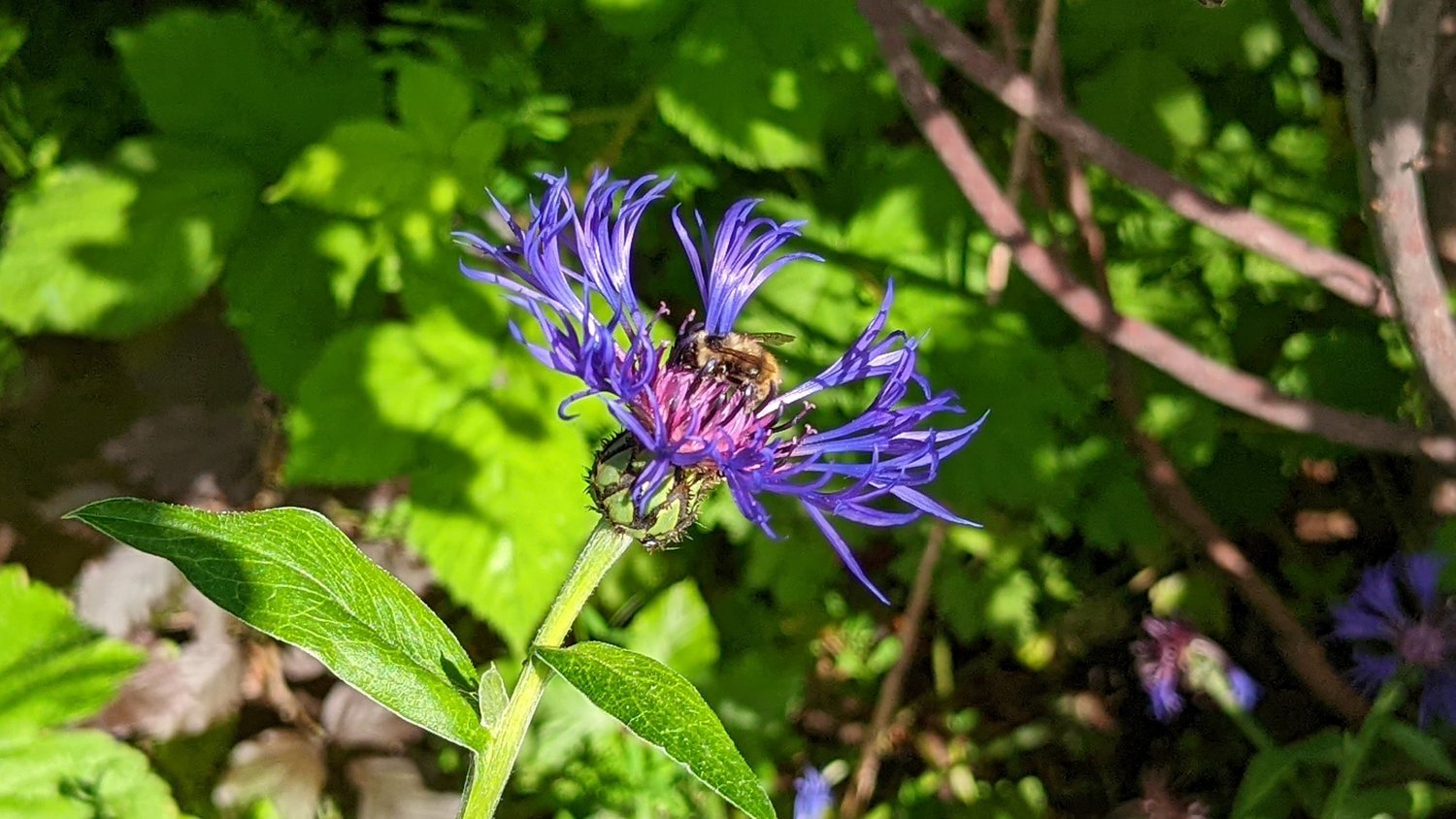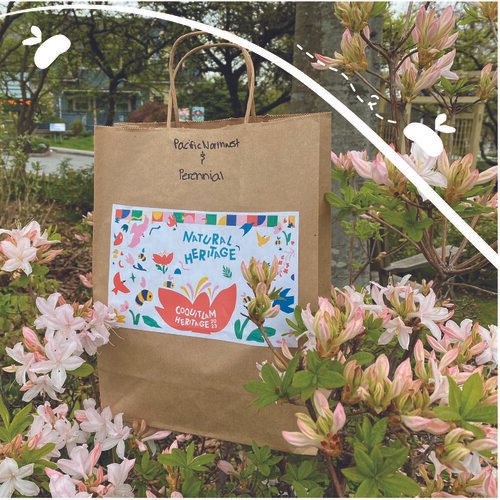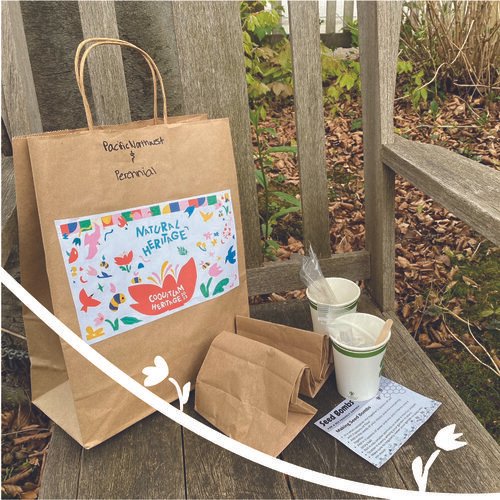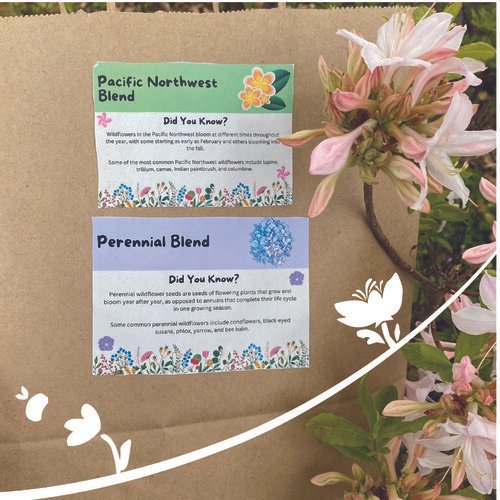Natural Heritage
Natural heritage refers to animals, plants, natural features, and geological formations that make up our environment. How we interact with these components and how we use, preserve, or misuse the environment directly affects our lives, our cultures, and our world. This year, Coquitlam Heritage is exploring how the Coquitlam community and Metro Vancouver at large interacts with natural heritage.
What are your earliest memories of nature? Does your family or culture rely on nature or natural elements for your celebrations or traditions? How do birds, trees, bees, mountains, and water affect our lives and our world?
We'll be looking at all this and more during our summer events in the community. Come visit us at various festivals and community events over the next few months. Collect our free 2023 stickers, buy your own Coquitlam Heritage Natural Heritage t-shirt, take a photo in front of our specially-designed selfie wall, and more! See you there!
What We Are Doing This Year
YOUTH LED NATIVE GARDEN
At the end of 2022, staff of Coquitlam Heritage and Fresh Roots met to discuss a possible collaboration. The Suwa'lkh School Leadership Class has worked over the years to restore vital Indigenous plant systems around the Suwa’lkh (‘New Beginnings' in the Hul'qumi'num language) School which was formerly Millside school. Being just down the street, Mackin House Museum preserves the heritage of Fraser Mills, and so a project uniting current students who learn in the former school where mill worker’s children attended and the former home of mill management, creates a vital link between the past and future of Coquitlam.
As Fresh Roots specialize in growing foods and cultivating native plants, a designated space in the Mackin House garden was chosen to be re-planted by the students with emphasis on a garden that could educate visitors about native plants, and sustainable cultivation practices.
With visits to the museum, research, and planning, the Leadership class has access to the history of the area, along with the development of their expertise and personal skills around garden design, care, and implementation.
Fresh Roots is a charitable organization cultivating educational farms and programs where students dig into meaningful connections with the land, food, and each other, inspiring communities to build just food systems. They started the first schoolyard farms in Canada in 2013, and partnered with Suwa'lkh School in 2017 to steward the Healing Forest and Medicine Garden. They engage thousands of kids and youth annually in growing, cooking, and sharing food on their Lower Mainland farms.
Suwa’lkh (‘New Beginnings' in the Hul'qumi'num language) School is an alternative educational program that weaves in important Indigenous teachings. Guided by Fresh Roots staff and SD43 teachers, students in the Suwa'lkh School Leadership Class have led the process of removing invasive species and reintroducing Indigenous food and medicine plans in the Suwa’lkh Healing Forest. They also support the Fresh Roots farm at Suwa’lkh, growing and harvesting vegetables and herbs that go home with into the school’s lunch program, to student’s homes, and to a weekly seasonal market stand.
MASON BEES | Mason bees have returned to Mackin House!
We have set up our bee house this spring season for the return of our friendly Mason bees. Mason bees build their nests in tube like structures, in nature this may be reed plants or old beetle burrows. At Mackin, we have constructed a box for the bees, complete with tubes for them to build their nests in.
A Mason bees are a type of solitary bee, meaning they are quite different than the normal honeybee that one often thinks of when bees come to mind. Mason bees do not live in large colonies with a queen, in fact, any female mason bee can lay eggs. Mason bees also do not make any form of honey. For humans, there isn’t any byproduct produced by mason bees that we can use. They are important not for what they make, but for their power to pollinate a large number of different plants.
Read the full blog below to learn more and be sure to come visit us at Mackin House to see our nests and enjoy the garden.
SEED BOMBS
To celebrate Natural Heritage, we have made a limited amount of Seed Bomb kits for purchase and pick up from the museum. Kits are offered on a first come first serve basis. Your kit will contain materials to make 2 seed bombs and backyard bird worksheets that will help budding birders to identify visitors to our parks and backyards.
Not sure what Seed Bombs are?
Instructor Monica Mueller writes: seed bombs are a mixture of dirt, compost, and wildflowers seeds, combined and dried. They will break down, nourish the seeds, grow wildflowers, and ultimately aid the bees who desperately need more support in their overworked lives.
The Seed Bomb has been used effectively throughout time. They are an ancient Japanese practice called Tsuchi Dango, meaning ‘Earth Dumpling.’ Seed bombs were reintroduced in 1938 by a Japanese microbiologist/farmer Masanobu Fukuoka (1913–2008), author of The One Straw Revolution. Seed bombing was part of Fukuoka’s annual farming regime. He believed that Mother Nature takes care of the seeds we sow and decides which crops to provide us with, like a process of natural selection, because ultimately nature decides what will grow and when germination will occur, be that in 7 days or several seasons away. Fukuoka incorporated his ancestral gardening techniques into his own farming methods and, in so doing, started a revolution.
Read the full blog post here to learn how to make your own.
Where We Will Be This Year
In celebration of Natural Heritage, we will be at the following festivals and many more. Come by and find our tent!
What Will Be Available This Year
In celebration of our theme, we have t-shirts for sale and free stickers for pick-up. You can buy a t-shirt or reserve a sticker below, or pick it up at our tent at any of the festivals listed above.














